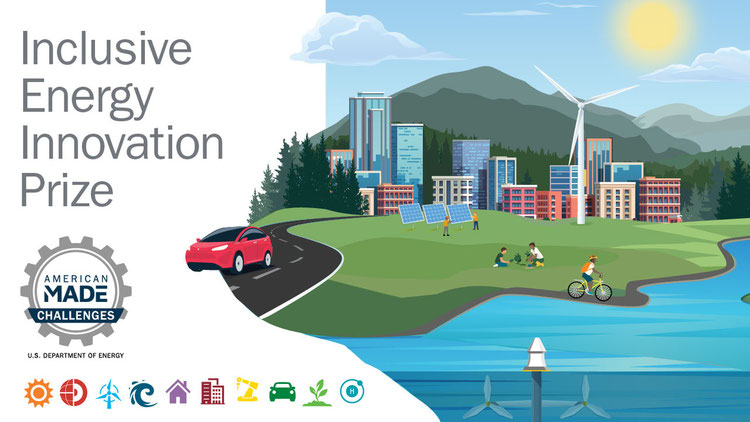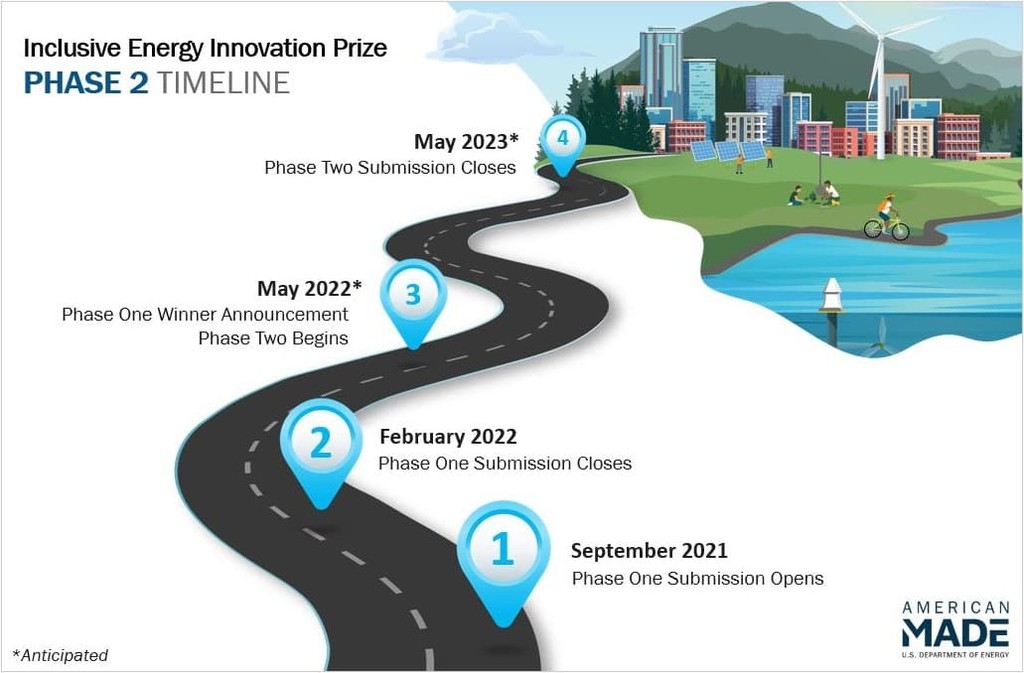The U.S Department of Energy has announced a number of funding opportunities:
EnergyTech University Prize
In EnergyTech UP, student teams will compete for $370,000 in cash prizes for successfully identifying a promising energy technology, assessing its market potential, and creating a business plan for commercialization.
EnergyTech University Prize Registration Closes: Jan. 26, 2023, 9:59 p.m. MT
EAS-E Prize
The goal of the EAS-E Prize is to support a suite of design solutions, tools, and/or technology innovations that make electrification more affordable and accessible in existing U.S. homes. Through this prize, the U.S. Department of Energy Building Technologies Office aims to create more opportunities and successes for electrification of the U.S. housing stock with a focus on equitable solutions for all homeowners—not only through affordability, but also by enabling solutions specific to dwellings more common in low-income and under-resourced communities. In some homes, load reduction strategies (e.g., building envelope upgrades) can also improve the reliability, affordability, and performance of electrification upgrades.
Design solutions/tools and technology innovations are eligible for the prize, with the goal to spur an ecosystem of products and approaches that work for every homeowner ready to make the switch. Low-power electrification solutions that limit the electricity demand of individual appliances or the whole dwelling (e.g., by avoiding electrical panel upgrades or controlling coincident loads) are strongly encouraged, because of their potential benefits to the project cost and speed of installation and their wider grid impacts. The innovations developed and launched in response to this prize will benefit the broader housing retrofit market by advancing building electrification solutions that are fast, easy, and scalable.
EAS-E Prize Phase 1: Concept Paper Deadline: March 8, 2023, 1 p.m. MST
Community Power Accelerator Prize
The American-Made Community Power Accelerator Prize is a $10 million prize competition designed to fast-track the efforts of new, emerging, and expanding solar developers and co-developers to learn, participate, and grow their operations to support multiple successful community solar projects.
The goal of this prize is to grow a robust ecosystem of community solar project developers that incorporate meaningful benefits into projects across the United States.
Join us for an informational webinar to learn more about the Community Power Accelerator Prize: Feb. 1, 12 p.m. ET - Register Here
Community Power Accelerator Prize Phase 1: Ready! Deadline: March 15, 2023, 3 p.m. MT
Buildings Upgrade Prize
Upgrading existing buildings to efficiently run on clean energy will help address climate change. Building upgrades may include transitioning to efficient electric equipment, including heat pumps and heat pump water heaters, and improving building efficiency through measures such as insulation and air sealing. Together, efforts will help reduce carbon emissions and energy costs, while improving indoor air quality and occupant comfort.
Developed by the U.S. Department of Energy Building Technologies Office (BTO), Buildings UP aims to build capacity to rapidly and equitably transform U.S. buildings. Teams will submit innovative concepts to leverage the billions of dollars available through the Bipartisan Infrastructure Law (BIL), the Inflation Reduction Act (IRA), utility rebate programs, and many other funding sources, capitalizing on this once-in-a-generation opportunity to equitably transform a wide variety of buildings across diverse geographies. As teams progress through the prize, they will receive cash prizes and technical assistance to help bring their ideas to life.
Join us for an informational webinar to learn more about Buildings UP : Feb. 2, 12 p.m. ET - Register Here
Buildings Upgrade Prize Phase 1: Concept Deadline: July 18, 2023
Energizing Rural Communities Prize
The prize will launch in February as part of the $1 billion Energy Improvements in Rural or Remote Areas (ERA) Program, created by the U.S. Department of Energy’s Office of Clean Energy Demonstrations (OCED). The ERA Program supports projects that improve the resilience, reliability, safety, availability, and environmental performance of energy systems in rural or remote areas of the U.S. with populations of no more than 10,000 people.
Through workshops and community input, the ERA Program has found that two of the biggest barriers to improving energy systems in rural or remote areas are developing the necessary partnerships and securing financing.
The Energizing Rural Communities Prize has two tracks:
- The Partner track—with a $10 million cash prize pool—will support plans to connect rural or remote communities to government funding, technical assistance, or a network of partners that can help implement clean energy demonstration projects.
- The Finance track—with a $5 million cash prize pool—will support plans to access capital or to develop community ownership models to help finance clean energy demonstration projects in rural or remote areas.
This prize is for entrepreneurs, university faculty and student groups, community organizations, tribal and local governments, financial institutions, industry professionals, and others with ideas to help organize or finance a clean energy demonstration project in a rural or remote area.
Join us for a rules workshop to provide feedback to the Energizing Rural Communities Prize: Feb. 1, 12 p.m. ET - Register here
Energizing Rural Communities Prize Deadlines TBA
DOE Launches New $50 Million Program to Help Communities Meet Their Clean Energy Goals
‘Clean Energy to Communities’ Program Will Connect Local Leaders with DOE’s National Laboratories to Help Communities Transition to a Clean Energy Future
C2C offers three levels of technical assistance:
- In-depth technical partnerships: Multi-year partnerships that provide cross-sector modeling, analysis, and validation, paired with direct funding to help four to five selected teams of local governments, electric utilities, and community-based organizations each their goals and/or overcome specific challenges.
- Peer-learning cohorts: Small groups of local governments, electric utilities, or community-based organizations that meet regularly for approximately six months to learn from each other and lab experts in a collaborative environment to develop program proposals, action plans, strategies, and/or best practices on a pre-determined clean energy topic. Cohorts will include approximately 100 communities in total.
- Expert match: Short-term assistance (40-60 hours) with one or more technical experts to help address near-term clean energy questions or challenges for up to 200 communities.
Clean Energy to Communities - Applications are accepted on a rolling basis.
Additionally, U.S. Small Business Administration (SBA) has announced: 2023 Growth Accelerator Fund Competition
The U.S. Small Business Administration (SBA) is offering $3,000,000 in prize awards over two phases in it's 2023 Growth Accelerator Fund Competition for impactful and inclusive approaches to foster a thriving, collaborative national innovation support ecosystem to advance research and development (R&D) from ideas to impact.
Stage One: $50,000 cash prizes will be awarded to organizations (Catalysts) to catalyze relationships between aligned stakeholders (Ecosystem Partners) that lead to the development of Growth Accelerator Partnerships. Catalysts work collaboratively with Ecosystem Partners to bring additional resources, deepen network connections, and develop strategies that amplify the impact and success of the Growth Accelerator Partnership and the STEM/R&D-focused entrepreneurs and small businesses it serves. SBA encourages creative models for ecosystem building. SBA welcomes Stage One submissions from a broad range of organizations with a collaborative vision to nurture a national ecosystem for equitable access to entrepreneurship.
Competition Goals:
- Increase the pipeline and success of STEM/R&D-focused entrepreneurs and small businesses;
- Increase the success of STEM/R&D-focused entrepreneurs in accessing capital and resources to advance their businesses;
- Incentivize innovation ecosystem stakeholders to provide equitable access to resources for underserved communities and industries;
- Catalyze partnerships and relationships between stakeholder groups to strengthen the national innovation ecosystem; and
- Connect both new and established participants in the national innovation ecosystem
2023 Growth Accelerator Fund Competition Deadline: February 24, 2023 at 12:00 pm EST.











